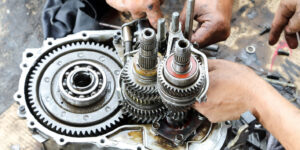If you’re a Jeep enthusiast, there are certain parts you can’t do without. From air conditioning compressors to alternators, you need to know where to find the best parts for sale when it’s time for maintenance and repairs.

Air Conditioning Compressor
The air conditioning compressor is one of the most crucial components in your Jeep Cherokee’s air conditioning system. When the compressor goes bad, you might notice a lack of cold air coming from the vents or hear a clicking sound when the engine is turned on.
The AC compressor takes the Freon refrigerant and compresses it to a cooler temperature. Then it pushes it through the evaporator, where the refrigerant absorbs heat from the cabin air. The vapor then returns to the compressor, and the cycle begins again.
A/C Hoses
A/C hoses carry refrigerant from the air conditioner compressor to the body-mounted components in the A/C system. Over time, these hoses can become damaged and leak refrigerant.
The discharge hose transports pressurized liquid refrigerant from the compressor to the condenser. It is important to check this hose frequently, especially if you live in an area that experiences hot weather.
A/C hoses are available in many sizes and shapes, so make sure you shop for the right one for your vehicle. The best way to find a hose is to ask your mechanic for help. He or she will be able to tell you which is the most appropriate and cost-effective option for your specific vehicle.
Brake Pads
Brake pads are a vital component of your vehicle’s braking system. When they start to wear down, you should have them replaced immediately.
The brake pad material you choose will determine how well they stop your Jeep Wrangler. There are four main types: metallic, non-metallic, semi-metallic and ceramic.
Generally, the lower the friction coefficient of a brake pad, the better it’ll stop your Jeep Wrangler. But you need to be careful not to get them too grippy.
Clutch
The Clutch is one of the most important Jeep parts because it is responsible for transferring power from your engine to your transmission. If your clutch is faulty, your vehicle will struggle to turn.
The best way to avoid this problem is to purchase a quality Jeep clutch from an reputable manufacturer. This will help keep your vehicle safe and make it last longer.
There are a variety of clutch kits available for sale, so it is important to choose the one that fits your needs. Some are a bit more expensive than others, but they will be worth it in the long run.
Power Steering Pump
The power steering pump is a crucial part of your vehicle’s steering system. It pushes hydraulic fluid out at high pressure and helps you turn your wheel with less effort.
Without the power steering pump, your vehicle’s steering can become extremely difficult to control at any speed.
Your car’s power steering system needs to engage instantly to respond when you use your steering wheel, so it’s important that this component stays in good shape.
If you notice that your steering becomes hard to control, or if you hear whining or grinding noises while turning the wheel, you may need to replace your pump.
Power Window Switch
Whether you’re on a long road trip or just driving to work, your power window switch helps ensure the windows in your Jeep Patriot open and close easily. However, when your switch breaks down or stops working, it’s time to replace it with a new one from AutoZone.
The power window switch on your vehicle connects to the power source, motor, regulator and wiring. It also sends signals to the window motor which then opens and closes the windows.
